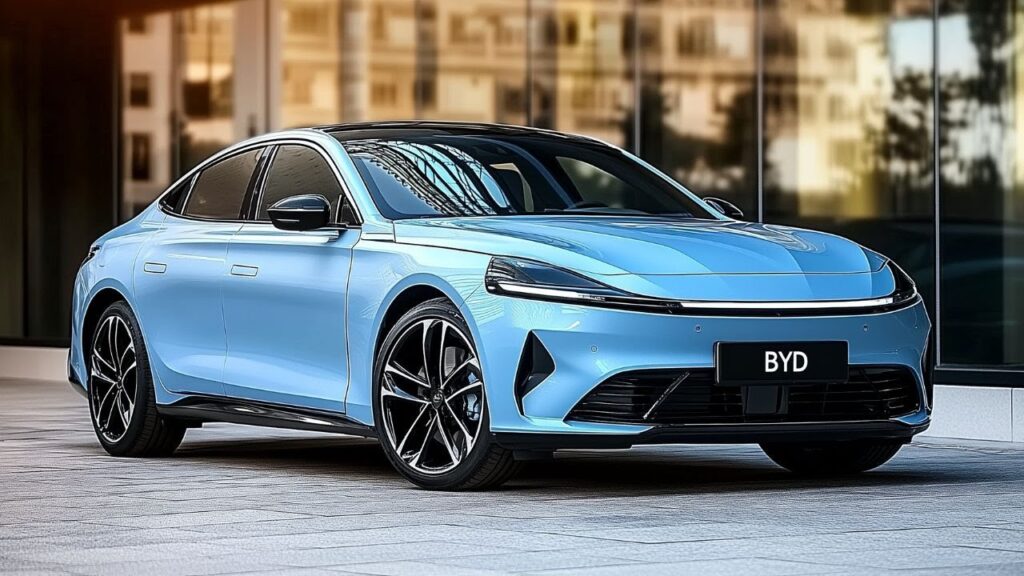With the current increase in the world’s population and the advances in technology, including electric vehicles (EVs), there has been an increase in the need for EVs, and as a result, BYD, a Chinese vehicle firm that offers cheap and creative EVs, has started to make its way into many countries. Nonetheless, despite its growth in the international sphere, the low-cost electric vehicles that the company BYD offers are likely to omit the Canadian market from their offerings. If this is such an encouraging EV manufacturer, why would it feel the need to miss out on the Canadian market, which is shifting towards eco-friendly vehicles? This article explores the reasons why BYD is unlikely to operate in Canada, what this means to the Canadian markets and consumers in particular, and what the future of low-cost EVs in that country may be.
Why BYD EVs Are Affordable and Popular Globally

Much of the reason that BYD is now synonymous with affordable and durable electric vehicles owes to its state-of-the-art manufacturing and production strategies that aim at providing value for money. This encourages the firm to produce low-cost electric vehicles of high standard. Whether it is small city vehicles or big SUVs, BYD has something for everyone who cares about green and cost-effective mobility solutions.
In various European, South American, and Asian nations, the BYD brand has been accepted without hesitation as its products are reasonably priced and practical. The success of Dign models like the BYD Dolphin and Yuan Plus among the masses has enabled BYD to enjoy a sizeable portion of the global electric vehicle market.
BYD’s Expansion Strategy
BYD has made a gradual foray into various global markets, giving them priority to Western nations, especially the U.S. and a number of European states. Its strategic focus, however, continues to be areas with a considerable demand and enabling policies for electric vehicles. Nevertheless, new market entry is not without its challenges, as it has regulatory and competitive, as well as logistical, aspects.
The Canadian Market for EVs
Owning an electric vehicle has become more eventful due to the federal and provincial incentives that have promoted the adoption of EVs in Canada; however, the adoption rate of EVs has been gradually rising over the years. As the population of Canada continues to grow, more and more people are concerned about environmental causes, and government policies are keenly favorable. The Canadians are keen on how they can consume the modes of transport that are non-polluting and cost-effective yet available at reasonable prices.
Challenges in Bringing BYD EVs to Canada
There could be numerous reasons as to why BYD cannot penetrate the Canadian market. For instance, there are regulatory issues such as safety and emissions standards in Canada that can entail a lot of modifications that incur costs in production. Moreover, establishing a distribution channel and electric vehicle infrastructure can be a problem for BYD considering the factors of geography and logistics in Canada.
Competition in the Canadian EV Market

Moving on to Canada, the electric vehicle market has already been invaded by some popular ones, which include Tesla, Nissan, or Chevrolet. These companies manage to build a presence that is quite notable, investing heavily in the charging networks and customer support. The introduction of BYD would add another player in the field, but the problem lies in the established (and strong) existing brands.
Potential Impact of BYD’s Absence in Canada
Without the low-cost electric vehicles offered by BYD in the Canadian market, it will be difficult for Canadian consumers to find many economical choices for EVs. It may also reduce the rate of acceptance of affordable EVs in Canada, which further limits the rate of progress towards the green transportation policies in the country. Moreover, the technologically advanced yet reasonably priced models designed by BYD would have helped to expand the EV market in Canada.
Why Canada Could Still Be a Future Market for BYD
It may be the case for the time being that BYD won’t be entering the Canadian market, as demand, government policy, or even potential partnerships with companies in Canada may change in the future. In case the political climate improves or there is an increased appetite for affordable electric cars, BYD may change its mind.
Alternative Affordable EV Options in Canada
The good news for Canadians is that there are other cheap EV options that do not involve the BYD, like the Chevrolet Bolt, the Nissan Leaf, and the Hyundai Kona Electric, for instance. These models have similar specifications to those of BYD EVs in terms of range, performance, and cost. However, despite the basic similarities of the above-mentioned vehicles, each one has its own specific features that consumers will have to take into account in selecting what is the best electric vehicle for personal use.
The Future of Affordable EVs in Canada

In response to increasing demand for inexpensive electric vehicles, more and more automobile manufacturers will turn their attention to the production of low-cost, affordable electric vehicles. Canada’s embrace of environmental sustainability will probably engender more policy interventions aimed at making cheap electric vehicle options available, and hence will promote the evolution and variety of the electric vehicle market.
Conclusion
The expected non-entrance of BYD into the Canadian market leaves a void in the inexpensive electric vehicle segment, which may restrict the number of alternatives available for cost-sensitive consumers who wish to travel green. For the time being, Canadians may lose out on the affordable technology of BYD, but as it seems that the changes in the EV sector are likely to happen soon, such a possibility will not be ruled out. Additionally, other cheap electric vehicles will be available to Canadians, and looking at the future, there will be sufficient competition and variety in the available range as the market is expanding.
FAQs
What prevents BYD from coming into the Canadian market?
Due to the existing regulatory, logistical, and market entry costs issues, BYD faces a lot of challenges in entering Canada.
Is there a way I can bring a BYD EV to Canada?
Yes, there are ways to bring BYD EVs into Canada by third-party dealers, but the process comes with added costs and import limitations.
In the long term, does BYD have any plans to come into the Canadian market?
Although there are no plans to launch in Canada in the near term for BYD, sub-‘new forecasting’ changes in the external markets and regulations may prompt the firm to do so.




